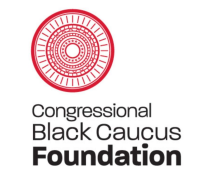Yolanda Raine
Vice President, Marketing and Communications
202-809-2011
yraine@cbcfinc.org
Nicole Austin-Hillery, President and CEO, Congressional Black Caucus Foundation, issued the following statement on U.S. Supreme Court Decision on the Use of Affirmative Action in Higher Education
(Black PR Wire) Washington, D.C. – Today, the Congressional Black Caucus Foundation (CBCF) expresses deep concern and profound disappointment in the US Supreme Court’s decision to end affirmative action as we know it in the college admissions process. This decision overturns years of precedent and undermines decades of progress made towards achieving racial equity and promoting diversity in our educational institutions, a core part of CBCF’s mission.
Affirmative action has been a critical tool in addressing historical injustices and systemic barriers faced by underrepresented communities, particularly Black Americans. It has provided a pathway for equal access to education and employment opportunities that were previously denied due to discrimination and prejudice. By dismantling affirmative action policies, we risk eroding the progress we have made towards creating a more inclusive and equitable society.
The CBCF firmly believes that diversity in our educational institutions and workplaces is not only a moral imperative but also a vital component of a thriving democracy. Race-conscious admissions policies have been instrumental in fostering diverse learning environments and producing invaluable educational benefits for all students, demonstrated by decades of research, which the Supreme Court disregards. Racially diverse campuses enrich educational experiences and outcomes, increase and improve civic engagement, and better prepare students to navigate an increasingly diverse workforce. CBCF, through our Leadership Institute, has robust internship, fellowship, and scholarship programs because we believe the same. Today’s decision ensures that opportunities for future leaders who are yet to be known have been severely diminished.
Ending the use of race-based admissions policies in higher education will have far-reaching consequences, exacerbating existing disparities, and perpetuating inequality. While many believe these policies are no longer necessary, the data show otherwise, as seen in the state of Michigan, for example: Black undergraduate student enrollment saw a 44 percent drop after race-conscious admissions decisions were banned. As Justice Jackson writes in her poignant dissent in the University of North Carolina case, “deeming race irrelevant in law does not make it so in life…race still matters to the lived experiences of all Americans in innumerable ways, and today’s ruling makes things worse, not better.” It is crucial that we continue to pursue policies and initiatives that promote equal opportunities for all, regardless of race, ethnicity, gender, socioeconomic status, or other background.
The CBCF remains committed to advocating for policies that uplift marginalized communities and eradicate systemic discrimination. We will continue to work tirelessly with lawmakers, civil rights organizations, and community leaders to address the challenges presented by this decision and fight for justice, equality, and inclusion for all.
We urge policymakers, educators, and advocates to come together and explore alternative strategies that can effectively advance diversity, equity, and inclusion in our educational institutions and workplaces. By working collaboratively, we can ensure that every American has a fair chance to succeed.
###
About the Congressional Black Caucus Foundation
The Congressional Black Caucus Foundation (CBCF) is a nonprofit organization focused on advancing the global Black community by developing leaders, informing policy, and educating the public. Through its scholarships, internships, and fellowships, the CBCF equips young leaders with the skills and knowledge to address the challenges facing Black communities. To learn more, visit www.cbcfinc.org.

